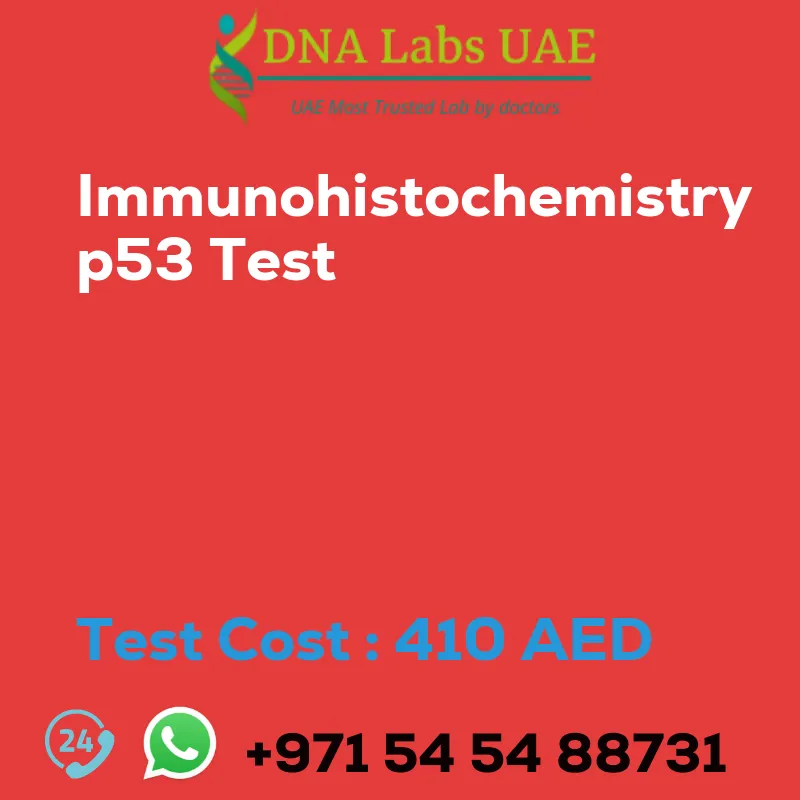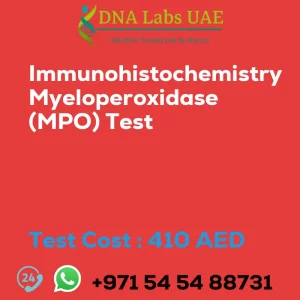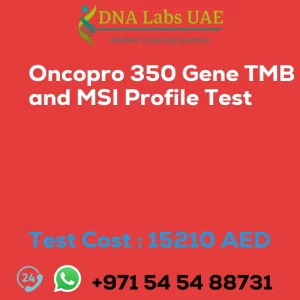IMMUNOHISTOCHEMISTRY p53 Test
Test Name: IMMUNOHISTOCHEMISTRY p53 Test
Components: p53 Test
Price: 410.0 AED
Sample Condition: Submit tumor tissue in 10% Formal-saline OR Formalin fixed paraffin embedded block. Ship at room temperature. Provide a copy of the Histopathology report, Site of biopsy and Clinical history.
Report Delivery: Sample Daily by 6 pm; Report Block: 5 days Tissue Biopsy: 5 days Tissue large complex: 7 days
Method: Immunohistochemistry
Test Type: Cancer
Doctor: Oncologist, Pathologist
Test Department: Pre Test Information
Provide a copy of the Histopathology report, Site of biopsy and Clinical history.
Test Details
Immunohistochemistry (IHC) is a technique used to detect specific proteins in tissue samples. The p53 test is an immunohistochemistry test used to detect the p53 protein in tissue samples. p53 is a tumor suppressor protein that plays a crucial role in preventing the development of cancer. Mutations in the p53 gene can lead to the accumulation of abnormal p53 protein, which is associated with various types of cancer.
The p53 test involves staining tissue sections with specific antibodies that bind to the p53 protein. The antibodies are usually labeled with a chromogen or a fluorescent dye, allowing the visualization of the protein under a microscope. The presence and localization of p53 protein in the tissue sample can then be determined.
The p53 test is commonly used in cancer diagnosis and prognosis. It can help determine the presence of p53 mutations or alterations, which can provide important information about the aggressiveness of the tumor and the likelihood of response to certain treatments.
Overall, the p53 immunohistochemistry test is a valuable tool in cancer research and clinical practice, providing important insights into the molecular characteristics of tumors and guiding treatment decisions.
| Test Name | IMMUNOHISTOCHEMISTRY p53 Test |
|---|---|
| Components | |
| Price | 410.0 AED |
| Sample Condition | Submit tumor tissue in 10% Formal-saline OR Formalin fixed paraffin embedded block. Ship at room temperature. Provide a copy of the Histopathology report, Site of biopsy and Clinical history. |
| Report Delivery | Sample Daily by 6 pm; Report Block: 5 days Tissue Biopsy: 5 days Tissue large complex : 7 days |
| Method | Immunohistochemistry |
| Test type | Cancer |
| Doctor | Oncologist, Pathologist |
| Test Department: | |
| Pre Test Information | Provide a copy of the Histopathology report, Site of biopsy and Clinical history. |
| Test Details |
Immunohistochemistry (IHC) is a technique used to detect specific proteins in tissue samples. The p53 test is an immunohistochemistry test used to detect the p53 protein in tissue samples. p53 is a tumor suppressor protein that plays a crucial role in preventing the development of cancer. Mutations in the p53 gene can lead to the accumulation of abnormal p53 protein, which is associated with various types of cancer. The p53 test involves staining tissue sections with specific antibodies that bind to the p53 protein. The antibodies are usually labeled with a chromogen or a fluorescent dye, allowing the visualization of the protein under a microscope. The presence and localization of p53 protein in the tissue sample can then be determined. The p53 test is commonly used in cancer diagnosis and prognosis. It can help determine the presence of p53 mutations or alterations, which can provide important information about the aggressiveness of the tumor and the likelihood of response to certain treatments. Overall, the p53 immunohistochemistry test is a valuable tool in cancer research and clinical practice, providing important insights into the molecular characteristics of tumors and guiding treatment decisions. |








